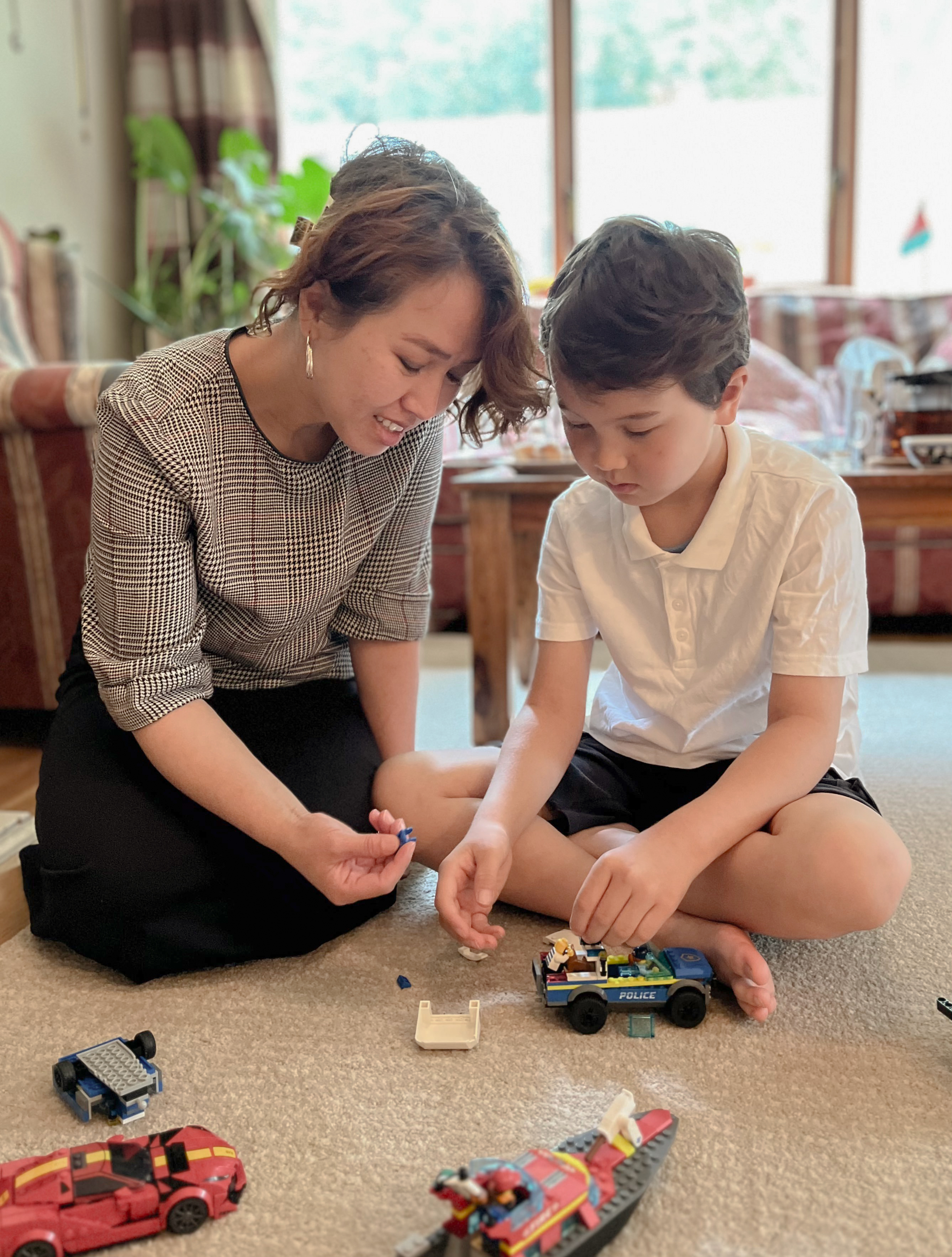Dublin, 15 August 2023 – As the cargo plane took off from Kabul International Airport with a deafening rumble, Latifa sat wide-eyed, in shock, after surviving her daring escape. Crammed alongside 800 others fleeing Afghanistan, that fateful day – two years ago already – remains forever etched in her memory.
Later, seeing horrific images of people clinging to planes as they departed the runway, desperate to escape after the de facto authorities came to power in August 2021, she realized just how lucky she had been to have found a safe path out of the country.
Latifa, a law professional, had spent her career working in various humanitarian and governmental organizations in Afghanistan. At the time, women in the country were free to pursue careers and could move freely.
“We worked hard in Afghanistan. Every woman, every girl had the opportunity to study and work. We wished to live in Afghanistan in peace, but everything changed. We lost everything from one day to another,” she explains.


Latifa used to work for humanitarian and governmental organizations in Afghanistan before having to flee her country. Photos: Latifa's personal archive
After hearing of the deteriorating security situation in the country, Latifa decided with her parents that, for their safety, it was best for them to leave the capital and move back to their hometown with her young son, Benyamin. As heartbreaking as it was to leave her family, this decision ultimately ensured their survival.
“I sent my parents and my son to live in my province to protect them, and I stayed alone in Kabul with my brothers. We were so stressed and depressed.”
The day the Taliban assumed control of Afghanistan is a haunting memory for Latifa. She was at work when she learned what had happened.
“That day, the security guard came to the office and told us all to run. Everybody was shocked.”
Although she wanted to return home to retrieve her personal documents, it was too risky as the area was already under patrol. Having worked in prominent government positions, Latifa felt particularly at risk. She decided to seek refuge at a friend's house instead, where she remained hidden for a week.
“It was so stressful. The Taliban knocked on the door every night trying to find people. I remember we had a large curtain to always keep the window closed. During that time, we never saw the sun,” Latifa recalls.
She managed to contact an international human rights organization who agreed to help her. Latifa carefully made her way to Kabul airport where she was met by the people who would ultimately save her life.

Supported by an international human rights organization, Latifa was able to escape Kabul unharmed and eventually made her way to safety. Photo: IOM/Angelica Trindade
Fleeing her country and leaving behind her son and family was an incredibly painful experience.
“It was a very difficult decision for me. At that moment, I had to decide between leaving Afghanistan alone and saving my life or refusing their help. Then I thought to myself: ‘A living mother is better than a dead mother.’ I didn't know what my future would be under the Taliban.”
The journey to safety was long and exhausting. Before reaching her final destination, the plane had to stop in several countries. The voyage involved many hours of travel, little food, and extreme cold.
“It is so scary when you don't know about your future. You don’t know where to go and what life will be like,” Latifa says.
Latifa finally arrived in Ireland and found temporary shelter in a refugee camp, but the pain of leaving behind her family, job, and culture was still deeply felt. Above all, she missed her son terribly and dreamed of the day they would finally be safely reunited.
During her stay in the refugee camp, Latifa tirelessly sought help to bring her son from Afghanistan. The process was long and arduous and involved extensive logistics and paperwork. Eventually, with the help of IOM Ireland's Family Reunification Programme, Latifa's dream became a reality – she would soon be reunited with little Benyamin.
After many months of separation, Latifa stood in Dublin airport and finally embraced her son. It was an unforgettable moment for everyone involved, filled with emotion.

Latifa greets her son for the first time in Ireland, thanks to IOM’s Family Reunification Programme. Photo: IOM/Angelica Trindade
IOM's Family Reunification Programme helps bring together family members living in different countries. From 2007 to 2021, IOM Ireland helped over 1,000 people reunite with family. Currently, in partnership with the Irish Red Cross (IRC), IOM Ireland is supporting around 30 people to reunite with family members in Ireland.
As for Latifa's parents, they also managed to leave Afghanistan and eventually found refuge in another country. Slowly, Latifa has started rebuilding her life in Ireland. Adapting to a new culture and learning a new language hasn't been easy, but she now lives with her son in a house shared with other women. Her son attends school and is making new friends.

Latifa and Benyamin enjoy playing together at their home in Ireland. Photo: IOM/Angelica Trindade

Latifa is looking forward to discovering what Ireland has to offer as she begins a new life with her son. Photo: Latifa's personal archive

Latifa and Benyamin proudly show off their Afghan heritage at a cultural event organized at his school. Photo: Latifa's personal archive
“I'm safe now. I'm relaxed because my family is safe, and I have my son here.”
She has a temporary job and hopes to pursue a Master's degree in Peacebuilding. Hopeful for a future with a brighter outlook for women in her country, Latifa plans to help others like her. “My goal is to go back to Afghanistan someday and work with people supporting human rights.”
Until then, she is relishing quality time spent with Benyamin – each moment a gift that she will never take for granted.
Written by Angelica Trindade and Amber Christino.



